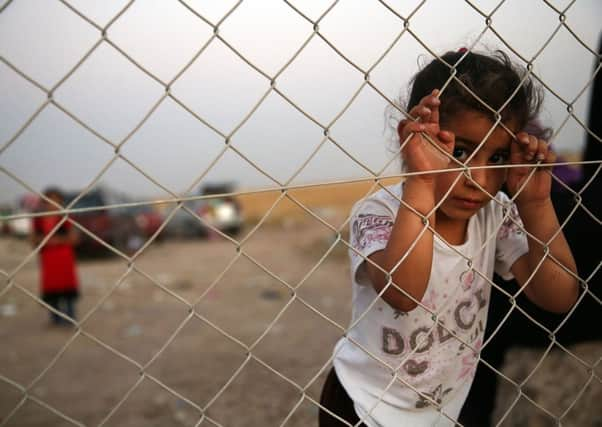Senior Iraqi cleric says Iraqi PM Maliki must go


The appeal by the Iranian-born Grand Ayatollah Ali al-Sistani comes as prime minister Nouri al-Maliki is fighting to keep his job, with his former Shiite allies and even key patron Iran exploring alternatives in the face of Iraq’s worst crisis since US troops withdrew in December 2011.
Mr Maliki, who has governed the country since 2006, needs support from other parties to survive. His State of Law bloc won the most seats in the elections but failed to gain the majority needed to govern alone.
Advertisement
Hide AdAdvertisement
Hide AdThat set the stage for potentially months of coalition negotiations.
But now a new government is wanted urgently to face the lightning advance across the north and west of the country by the al-Qaeda breakaway Islamic State of Iraq and the Levant (Isis).
The stunning gains were made possible in large part as Iraqi forces melted away due to fear of the insurgents’ brutality.
On the military front, four helicopters carrying Iraqi commandos landed inside a university campus in militant-held Tikrit late on Thursday night and clashed with Isis fighters for several hours.
One of the helicopters developed mechanical problems after take-off from Tikrit, 80 miles north of Baghdad, but landed in the provincial military HQ.
A military official said there was no word on Isis or government commando casualties suffered, and said he could not reveal what the objective of the mission was. The official also said 200 troops have arrived at a key refinery north of Baghdad under attack by militants for more than a week.
The reinforcing troops join a 100-strong contingent that has been defending the Baiji refinery, Iraq’s largest and the source of about a quarter of the country’s oil product needs, including fuel for power stations.
State-run TV aired footage yesterday purporting to show troops disembarking from helicopters at Baiji, with some carrying boxes of supplies. Dense black smoke was rising from what appeared to be a fuel tank.
Advertisement
Hide AdAdvertisement
Hide AdBaiji has effectively been the front line in the battle between the government and Isis forces, though it is not clear who is currently in control of the site.
The news from Tikrit and Baiji suggested that Iraq’s military was stepping up efforts to regain its footing against Isis, who appear to be trying to carve out a self-styled Islamic state astride the Iraqi-Syrian border.
Yesterday, Mr Maliki warned army commanders that militants were likely to try to undermine security in the Iraqi capital ahead of Tuesday’s parliamentary session. Mr Maliki sounded upbeat on the military situation, saying the armed forces have regained the initiative and were now on the offensive.
He cited Thursday’s Tikrit university raid as an example.
He also vowed to punish severely army commanders whom he said were taking bribes from soldiers to allow them to stay at home.
The US and other world powers have pressed Mr Maliki, in office since 2006, to reach out to the Sunni and Kurdish minorities and have called for a more inclusive government that can address longstanding grievances.
But he has instead widely been accused of monopolising power and alienating Sunnis, and his failure to promote national reconciliation has been blamed for fuelling the Sunni anger.